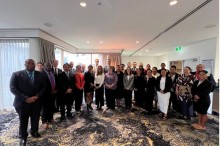Displaying 41 - 50 of 120
UNODA reinforces implementation of the Biological Weapons Convention (BWC) in Cameroon
On 22 and 23 April 2025 in Yaoundé, Cameroon, the United Nations Office for Disarmament Affairs (UNODA) and the Ministry of External Relations of Cameroon organized a national workshop on strengthening the implementation of the Biological Weapons Convention (BWC). Since it joined the BWC in January 2013, Cameroon has been at the forefront of promoting the Convention in Central Africa, including its universalization and effective implementation. In May 2023 in Douala, Cameroon hosted a Sub-regional Workshop for Central Africa on the Universalization and Effective Implementation of…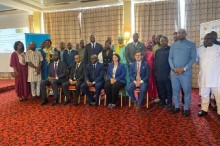
Regional Workshop for Southeast Asian and Pacific Island States on ‘Strengthening Regional Support for the Global Norm against Biological Weapons in the Context of the BWC, UNSCR 1540, and UNSGM’
From 6-8 May 2025, the United Nations Office for Disarmament Affairs (UNODA) convened a joint regional workshop at the Economic and Social Commission for Asia and the Pacific (ESCAP) Conference Centre in Bangkok, Thailand for Southeast Asian and Pacific Island States on “Strengthening Regional Support for the Global Norm against Biological Weapons in the Context of the Biological Weapons Convention (BWC), United Nations Security Council Resolution 1540 (2004), and the United Nations Secretary-General’s Mechanism for Investigation of Alleged Use of Chemical and Biological Weapons (UNSGM…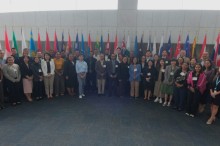
Cambodia is one step closer to creating a National Implementation Action Plan for Security Council resolution 1540 —a first for the ASEAN Region
From 23 to 25 April, the Government of Cambodia partnered with the United Nations Office for Disarmament Affairs (UNODA) to host a workshop on strengthening the implementation of United Nations Security Council resolution 1540 (2004). The event in Sihanoukville, Cambodia, brought together over 60 representatives from various ministries and agencies, as well as partner States, and international and regional organizations, to develop what could become the first voluntary National Implementation Action Plan for resolution 1540 (2004) to be adopted in the Association of Southeast Asian Nations…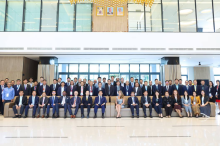
UNODA Supports Nigeria in Validating its UNSCR 1540 National Implementation Action Plan and Supplementary Report
With the support of United Nations Office for Disarmament Affairs (UNODA), the Office of the National Security Adviser to the President of the Federal Republic of Nigeria hosted a workshop in Abuja on 7-8 April 2025, which brought together fifty representatives of twenty-seven government ministries, departments and agencies. Also in attendance were subject-matter experts from the United Nations Security Council Committee established pursuant to Security Council Resolution 1540 (1540 Committee), the United Nations Office on Drugs and Crime (UNODC) and the European Union Partner-to-Partner…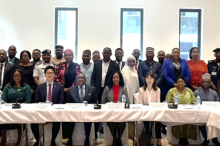
UNODA organizes the first national workshop to strengthen the implementation of the Biological Weapons Convention in Congo
From 26 to 27 March 2025 in Brazzaville, Republic of the Congo, the United Nations Office for Disarmament Affairs (UNODA) and the Ministries of Health, Foreign Affairs and Justice of Congo organized a national workshop on strengthening the implementation of the Biological Weapons Convention (BWC). This was the first BWC capacity-building workshop in Congo since it deposited its instrument of accession to the Convention in 1978. The Republic of the Congo has made significant progress towards BWC implementation prior to the event, in particular with the nomination of a BWC National…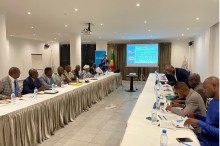
Commemorating 50 Years of the Biological Weapons Convention
On 26 March 2025, the global disarmament community marked a historic milestone – the fiftieth anniversary of the entry into force of the Biological Weapons Convention (BWC). To commemorate the occasion, the United Nations Office for Disarmament Affairs (UNODA) Geneva Branch and the BWC Implementation Support Unit (ISU), with financial support from the European Union, hosted a series of panel discussions with international experts. The event brought together diplomats, academics, civil society representatives and young scientists to exchange…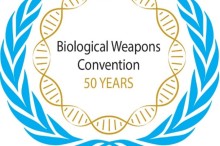
Government officials from all regions join workshop about reporting on military expenditures
On 2 April 2025, the United Nations Office for Disarmament Affairs (UNODA) partnered with the Stockholm International Peace Research Institute (SIPRI) to organize a training workshop for Diplomatic Missions in New York and Geneva as well as national focal points on preparing submissions to the UN Report on Military Expenditures (UNMilEx). The UNMilEx instrument was established by the United Nations General Assembly resolution 35/142 B, adopted in 1980. It was born out of a desire to at reduce excessive military spending; however, when…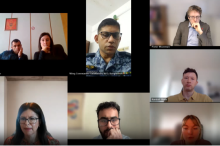
Second MAPS Dialogue on Capacity Building and International Cooperation on AI in the Military Domain
The following article represents a non-exhaustive summary of key elements emerging from the discussions held during the second session of the Military AI, Peace & Security (MAPS) Dialogues, a webinar series convened by the UN Office for Disarmament Affairs with the support of the Republic of Korea to foster inclusive multilateral dialogue on military applications of AI. Learn more about the event here or read the article on the first Dialogue on opportunities and risks here. Artificial intelligence (AI) in the military domain continues to evolve rapidly,…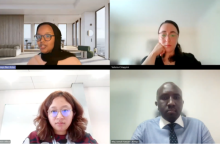
Inaugural MAPS Dialogue on Military AI: Opportunities, Risks, and International Peace & Security
The following article represents a non-exhaustive summary of key elements emerging from the discussion held during the first session of the Military AI, Peace & Security (MAPS) Dialogues, a webinar series convened by the UN Office for Disarmament Affairs with the support of the Republic of Korea to foster inclusive multilateral dialogue on military applications of AI. Learn more about the event here. This inaugural MAPS Dialogue, Military AI: Opportunities, Risks and International Peace & Security, focused on the risks and potential opportunities of AI in the…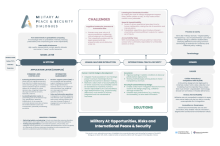
UNODA and BWC host workshop on Biological Weapons Convention for Pacific Island States
From 11 to 12 March 2025, in Sydney, Australia, the United Nations Office for Disarmament Affairs (UNODA) and the Biological Weapons Convention Implementation Support Unit (BWC ISU) organized a regional workshop on strengthening the implementation of the Biological Weapons Convention (BWC). The workshop was organized with the support from the European Union, the United Kingdom of Great Britain and Northern Ireland and the Department of Foreign Affairs and Trade (DFAT) of Australia. The workshop brought together representatives from 14 Pacific States Parties to the Convention,…